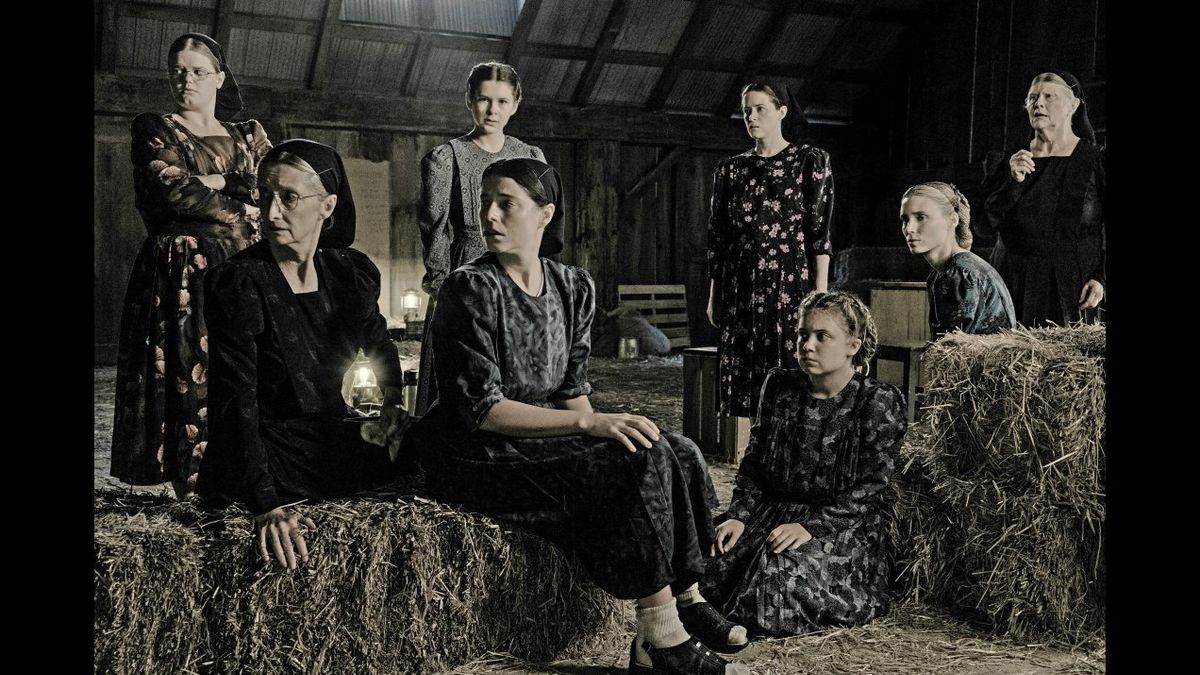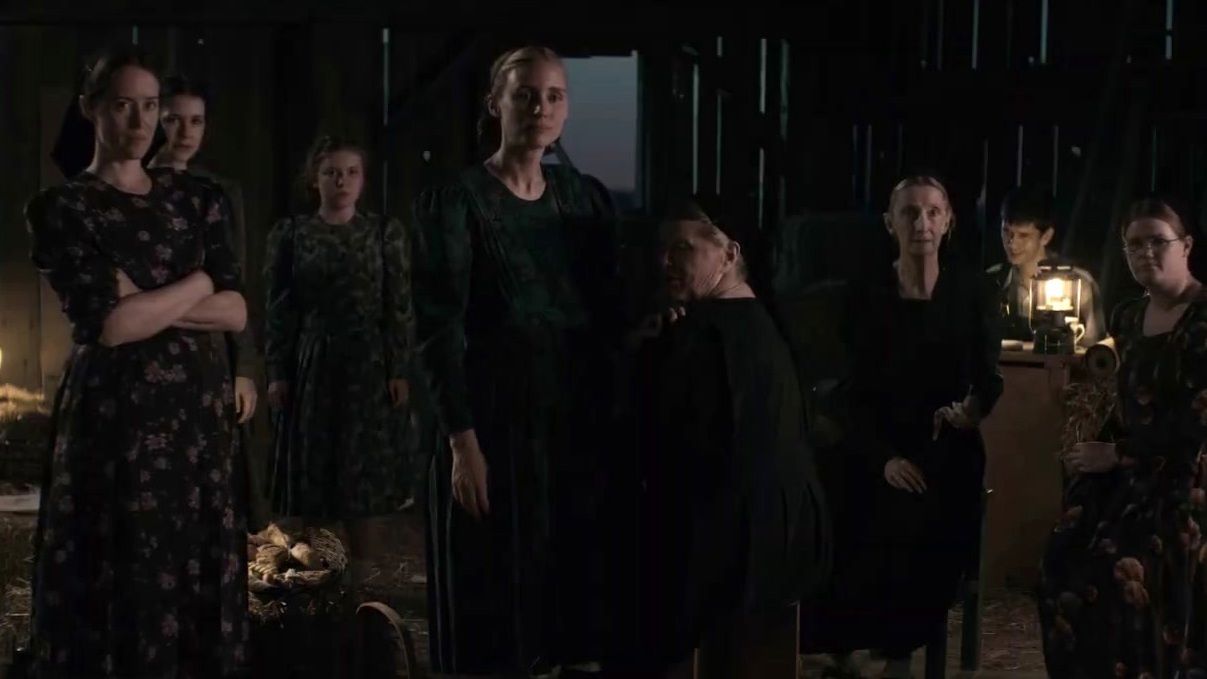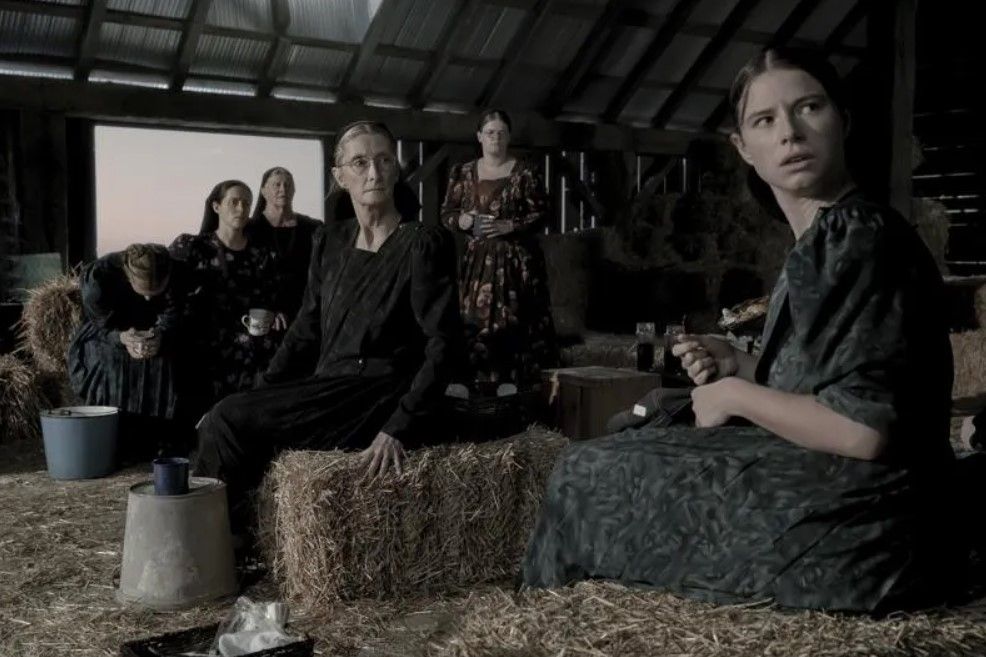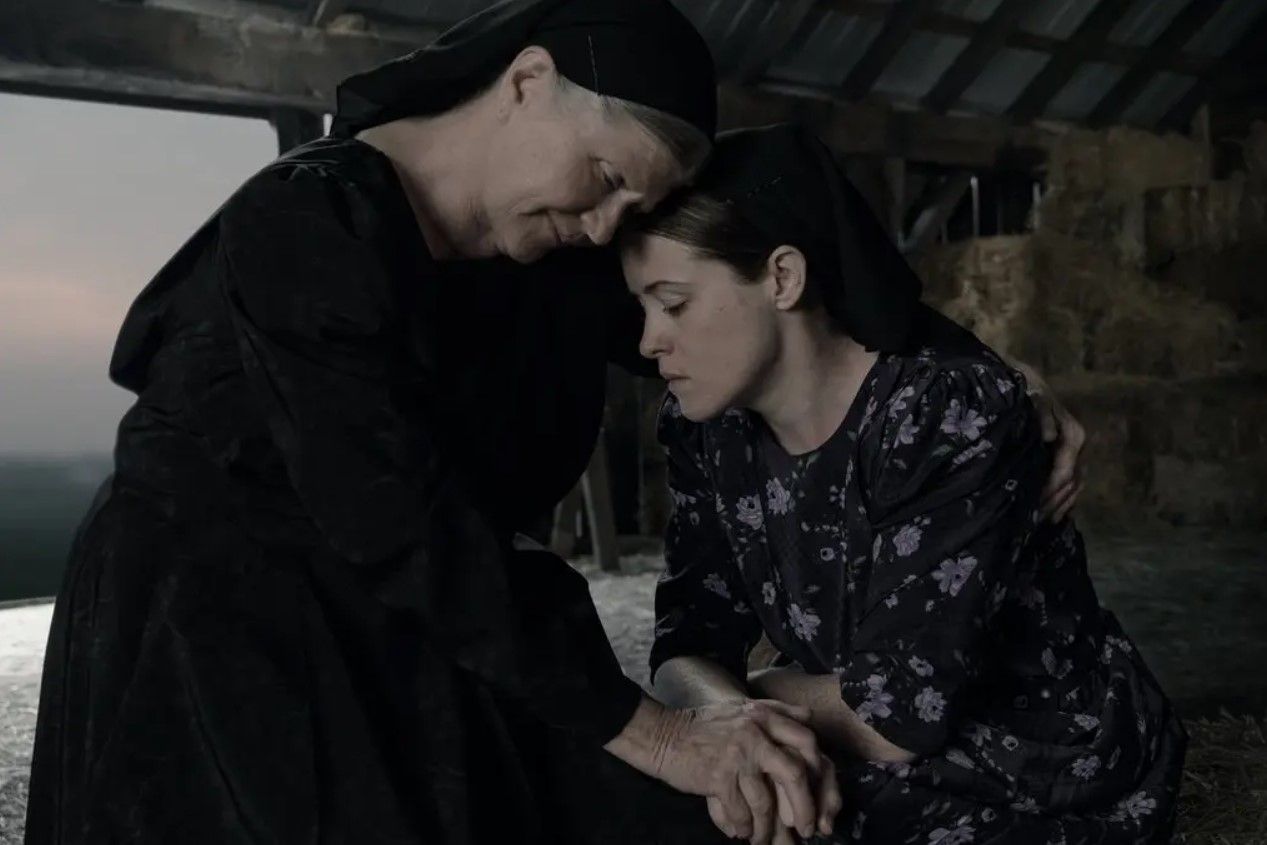A Quiet Place
In which Norm reviews Sarah Polley's WOMEN TALKING.

I want to write about Women Talking with the disclosure that Sarah Polley has become a very good friend over the last decade or so, to the point that were I still a proper film critic I likely wouldn’t allow myself to review her new movie to avoid the appearance of a conflict of interest. But I am no longer a proper film critic, and I have this space where I can write about whatever I want.
And I really want to write about Women Talking.
I’ve seen the film twice now: Once in early summer, for obvious reasons, and again just this weekend, as a refresher for the post-screening Q&A I’m doing tonight with Sarah, co-star Sheila McCarthy, cinematographer Luc Montpellier and editor Chris Donaldson at the Lightbox tomorrow night. (That’s 7 pm, Friday December 23rd; tickets are still available.) Both viewings have left me convinced it’s her best film to date, which is really saying something given that her last feature, Stories We Tell, was a masterpiece.
An adaptation of Miriam Toews’ 2018 novel, Women Talking imagines a day-long debate between the women of a Mennonite community over whether to “do nothing, leave, or stay and fight” after discovering the menfolk – husbands, brothers, sons – have been tranquilizing and sexually violating them for years or even decades. Toews’ book was extrapolated from actual events that occurred in Bolivia; the film relocates the story to an unspecified North American locale. When it’s taking place is never made clear, but it’s probably around 2010. It doesn’t really matter; we see a car and hear a song at one point, but the subject matter is sadly evergreen.
All the women in the community have voted for one of the three choices; “do nothing” didn’t pass the straw poll, so the debate is simple: Do the women stay and fight for their personhood and their culture, or strike out for an unknown future, entirely unprepared for whatever the outside world might hold? None of them is literate, just one of a dozen ways their upbringing has ensured their total dependency on the existing power structure, so one man, August (Ben Whishaw) is present to take the minutes of their meeting, because he’s capable of writing down words.
August narrates Towes’ book, but not the film, one of several changes that expand and alter the material in ways more cinematic, expanding its scope and its impact. This is a film of faces and feeling, placing us in the barn with the mothers, daughters and granddaughters of three appointed families as they consider the pros and cons of their options. The camera gets close, letting us see opinions form and change – hostility softening into empathy, maybe, or a heart hardening in the face of another’s agony.

And that’s how Women Talking accumulates its power, and gains momentum: In the conversation, in the exchange of emotion, in the brief glimpses of real understanding. The actors are not so much directed as conducted, each of them guided to rise up amidst the ensemble at this moment or that, every single one of them offered a moment to be heard with crystalline clarity.
The three principal performers – Claire Foy, Jessie Buckley and Rooney Mara as Salome, Mariche and Ona – are tasked with embodying the three choices set before the women of the colony. Salome is enraged by the revelation of their ongoing abuse (previously, the colony’s men had gaslit the women about their assaults, convincing them they were either imagining them or being attacked by demons drawn to their inconsistent faith) and prepared to rain down unholy vengeance against any man who threatens her or her children. Foy is a force, projecting a sense that Salome is working to channel her fury into something constructive and not quite getting there.
Mariche is angry too, but also resigned to their situation, bitterly countering everyone else’s suggestions with worst-case scenarios. She inhabits the “do nothing” zone, and Buckley – a vibrant presence who I would have expected to be cast in the Salome role – gives Mariche an exhausted cynicism that makes her feel decades older than she is.
And as Ona, left pregnant by one of the assaults and refusing to treat her unborn child with anything other than love, Mara gives a performance that verges on the beatific, so hushed and noble I initially worried the character might tip over into literal sainthood. But it works, because we’re slowly led to see that Ona is the one person in the barn who understands the stakes aren’t just for the women of the colony but for every girl and woman they might yet produce: Leaving wouldn’t be an easy thing, but it would be worth whatever they’d have to endure. And on second viewing I saw how clearly Mara carries that knowledge, and how she’s just staying calm so everyone else can catch up.

This is not to minimize the excellent work of Sheila McCarthy and Judith Ivey as Greta and Agata, the older women in the barn, or Michelle McLeod as Mejal, who’s a little younger than Salome, Mariche and Ona but older than Autje (Kate Hallett) and Nietje (Liv McNiel), who are still children. Frances McDormand is also around as Scarface Janz, a character who isn’t participating in the debate but still makes her opinions clearly known.
McCarthy, whom I’ve adored since I’ve Heard the Mermaids Singing and maybe even before when she worked with The Frantics on their goofy CBC show in the early ’80s, is as good as she’s ever been – probably better, since no one’s ever given her a role like this – as the delicate Greta, whose rambling stories about her horses contain surprisingly practical metaphors, and Ivey – a New York stage legend who’s always an interesting screen presence – gives Agata a stolid wisdom that immediately tells us she’s been a counterweight to her friend’s flightiness for their entire lives. They’re smaller roles, but no less important. There are no small parts here, not really; even Shayla Brown and August Winter, who have a handful of lines apiece, are essential to the story.
So, with the caveat that Sarah is a friend and I'm always going to be in her corner: I think it's a triumph. She channels Toews’ book in a way that suits the story but also expands its scope; Women Talking could have felt like a filmed play, but her visual strategies (conceived in concert with director of photography Montpellier, who’ll be joining us tonight) keep it from feeling stagey. The speeches could be didactic, but they're too fully felt, by actors who know exactly how far to go. And I love the fact that she opens the film by referencing the idylls of Malick’s The Thin Red Line and The New World, stories of peaceful communities shattered by foreign men, only to invert them: It’s not the outsiders who are the threat here, but the men who built the community in the first place.
It’ll be seen by some as a MeToo movie, and that’s fair; indeed, it’s a far more successful film about women coming to terms with the scale of misogyny, entitlement and abuse in their culture than the year’s actual MeToo movie She Said. But at its heart, Women Talking is a story about girls and young women growing up with parents who don't protect them, in a system built on their casual exploitation, forced to mimic adult behavior without fully understanding it and – at long last – figuring out when to stand up for themselves.

And given the stories Sarah tells about her own career and childhood in her book Run Towards the Danger, that makes this the most personal film she’s ever made; the moment where a mother silently holds her daughter’s face, trying to beg forgiveness for sins she didn’t know she was committing, brought me to tears on my first viewing. A different shot did it the second time: An image that holds out genuine hope, lasting just long enough for us to believe it might take. Because for all of the awfulness with which Women Talking is willing to engage, both the movie and its director believe there are solutions out there. Some of them are obvious, some of them are obscured by noise, some of them have yet to be tested. But they’re out there, for men as well as women, and if we keep talking we might find the words that get us to them.
Women Talking opens in limited release today, Friday December 23rd, and goes wider in the new year. I’ll be welcoming Sarah, Sheila McCarthy, Luc Montpellier and Chris Donaldson to introduce the film at the 7 pm screening tonight at the TIFF Bell Lightbox in Toronto, and hosting other guests for introductions over the next few weeks; keep an eye on my Twitter accountfor specifics.
Shiny Things will publish on an erratic schedule over the holidays, depending on when I have time to write it, but if you upgrade to a paid subscription now you’ll be able to enjoy my favorite discs of the year andmy rundown of the year’s best movies. Women Talking will be on that list, and pretty high up.
